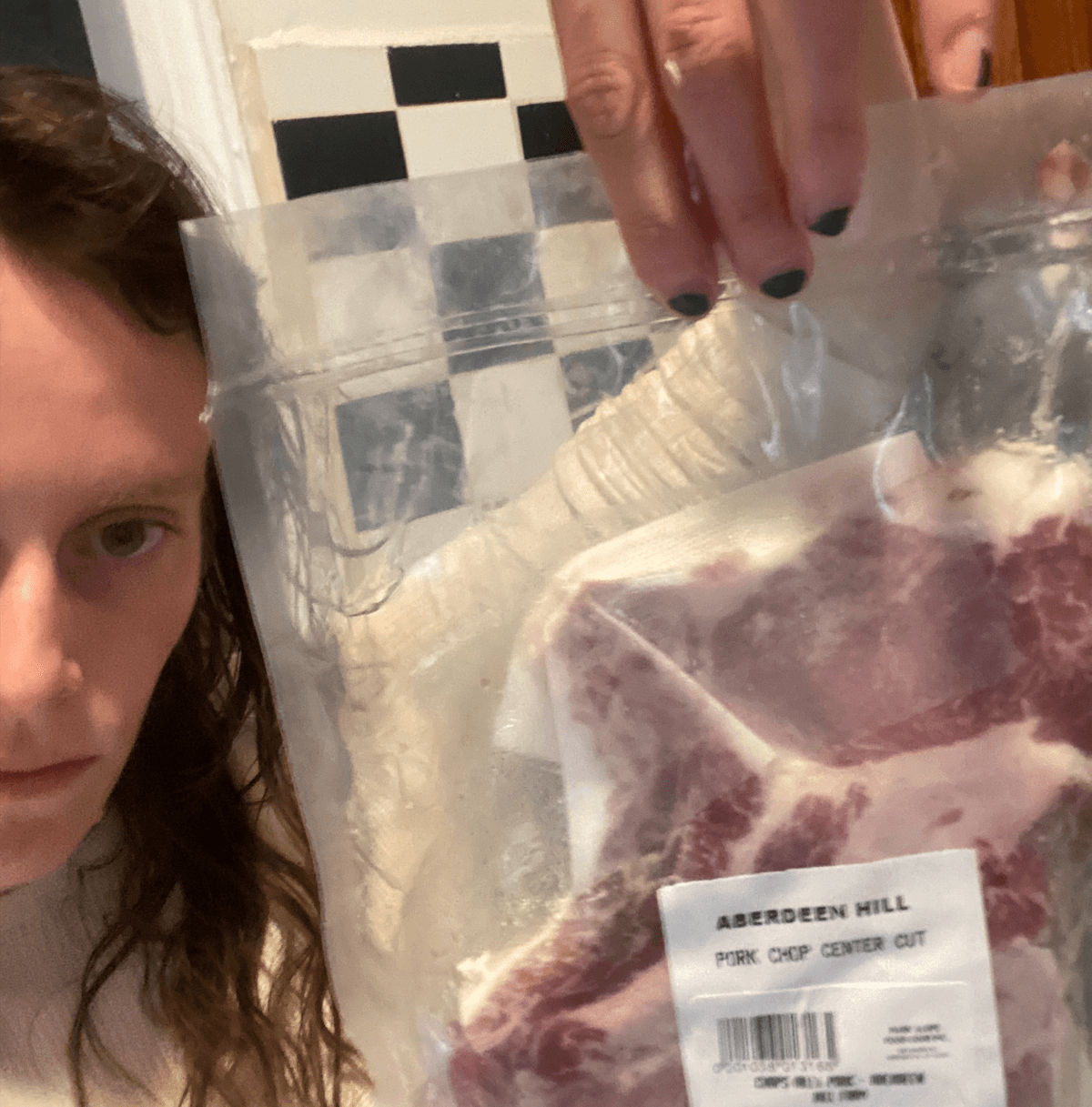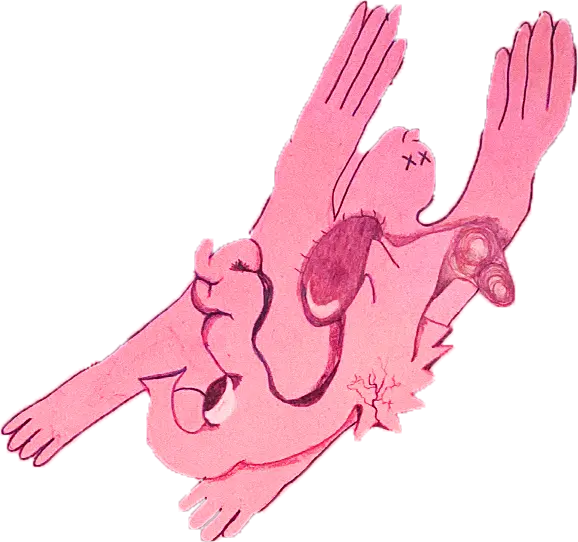PARADISE LOGIC
Sophie Kemp

I just love quest narratives. I’ve always thought they were the funniest storytelling modality. I was thinking a lot about Don Quixote while I was writing the book–the ultimate quest for a complete idiot.
TESS POLLOK: You just published your debut novel, Paradise Logic, about a girl named Reality Kahn on a quest to become the ultimate girlfriend in Gowanus. It’s wild, it’s Odyssean–but I felt the recent New York Times review was apt that “beneath insane layers of syntactical bizzaria, unbearable tragedy lurks.” I won’t spoil that for anyone, but it rings true for me as a reader. What inspired you while you were writing? What influenced your thinking about the novel?
SOPHIE KEMP: I actually came up with the idea for the novel by accident. I spent most of my teenage years making zines but sort of fell off with the practice as an adult. During the pandemic, I didn’t really have a lot going on, so I started making zines again, and as I was doing it, I realized they were all about the same thing–actually, a friend of mine pointed out that all of them were about the idea of paradise. She told me that could be an idea for a novel and I told her I didn’t write fiction. But six months later, I started, and that’s what turned into Paradise Logic.
POLLOK: Reality is on a perverse quest for love in the novel. Is that how it feels when you’re in love, perverse? Were there any autobiographical elements to writing this for you?
KEMP: No, not at all, it’s not an autobiographical novel by any means. But there are some elements of it that are drawn from my life, in the sense that there’s a core emotional truth to it–just how I think about love and how I think women think about love. But it’s interesting, I wonder if I was scared to maybe approach that concept too head on. My prose is very hyper-stylized and crazy. I did that intentionally to take what I felt was this truth about love, explode it, and maybe even defamiliarize myself with it as much as possible.
POLLOK: If there was an epilogue, what would Reality be doing today?
KEMP: That’s an interesting question because I feel there’s a major B-plot to the book that gets overlooked. The main story is about how love is a trap and there’s no way out, so, ultimately it’s this kind of nihilistic fable. But the B-plot, I think, is that she maybe realizes that instead of being a girlfriend she could be an artist.
POLLOK: The book is definitely about love in a very relatable way, especially the experience of navigating love as a woman in her early 20s. Do you want to expand at all on your commentary there? What about the format?
KEMP: I personally just love quest narratives. I’ve always thought they were the funniest storytelling modality. I was thinking a lot about Don Quixote while I was writing the book–the ultimate quest for a complete idiot. There’s definitely commentary embedded in my decision to make it a quest narrative, specifically, again, about women’s fixation on love. But, yeah, I see the format of the book as fundamentally relating to the comic fiction I’ve always loved and always related to the most. Like, I grew up watching Monty Python and the Holy Grail and I loved it.
POLLOK: I wanted to talk about your prose being hyper-stylized, which you already mentioned. It’s funny that a lot of the reviews, such as the recent one I’m remembering from LA Review of Books, have talked about Reality as an e-girl or qualified your book as “e-girl fiction.” The internet is barely in it at all.
KEMP: I know, Reality barely goes on the internet in the book. It’s not something she thinks about. I think if she goes on the Internet at all she uses Tor browser to troll dark web message boards. But I think it’s cool that the novel has that association and it’s not something I begrudge people. What I’m interested in, and what I hope is ultimately present in my work, is creating absurdist fiction with some Biblical elements, or, absurdist fiction with a Biblical slant to its personality.
POLLOK: I like that you’re relaxed about Reality being called an e-girl. I feel like people have started abusing the e-girl the way they abused the manic pixie dream girl after Scott Pilgrim came out.
KEMP: I know, well, I’m also a woman writing fiction and I was born in the mid ‘90s, so, I think people just assume that about my work because work from that era and that demographic, in people’s minds, it needs to be about the internet even when it’s not.
POLLOK: I think something I struggle with, which all artists struggle with but especially writers, is how the economy of criticism works. Thinking recently about other mid ‘90s writers and their literary debuts, there was Honor Levy’s My First Book and Gabriel Smith’s Brat, both of which are about the internet or at least reference it to a degree that’s considered unique. No artist has control over their work being in dialogue with any other artist’s work, but at the same time, it’s true that all of it ends up building on existing dialogues.
KEMP: Totally. I read Gabe’s book last year and I really loved it. I feel like all of the writers I’m getting lumped in with, I really respect.
POLLOK: I associated the book with the internet while I was reading it just because of the type of language you were using. It reminded me of Twitter.
KEMP: I know, other people have told me that, as well. I find it funny because that’s not what I was thinking about at all while I was writing it.
POLLOK: What did you read while you were growing up? Or, is there anything you’re reading now that inspires you?
KEMP: I read a lot but barely any contemporary fiction. Two recent contemporary fiction standouts for me were Gabe’s book Brat and Tony Tulathimutte’s Rejection. For the most part, I read 19th and 20th century fiction and some works that are a bit older than that. I really like Kathy Acker’s Don Quixote, Which Was A Dream, which is this feminist reimagining of Don Quixote from the ‘80s. Kazuo Ishiguro’s The Remains of the Day, a novel about a guy who wants to be the greatest butler of all time, is also just fantastic. The short fiction of Donald Barthelme is really important to me; I love Norman Rush’s Mating, which is another early ‘80s work about an anthropology PhD student doing her fieldwork in Botswana. Beyond that, I love Mary Robison and Renata Adler, and the 19th century French novel, like Flaubert. I just love everything. I love reading.
SOPHIE KEMP is a New York City-based novelist. Her first book, Paradise Logic, is available now.
TESS POLLOK is a writer and the editor of Animal Blood.
← back to features
